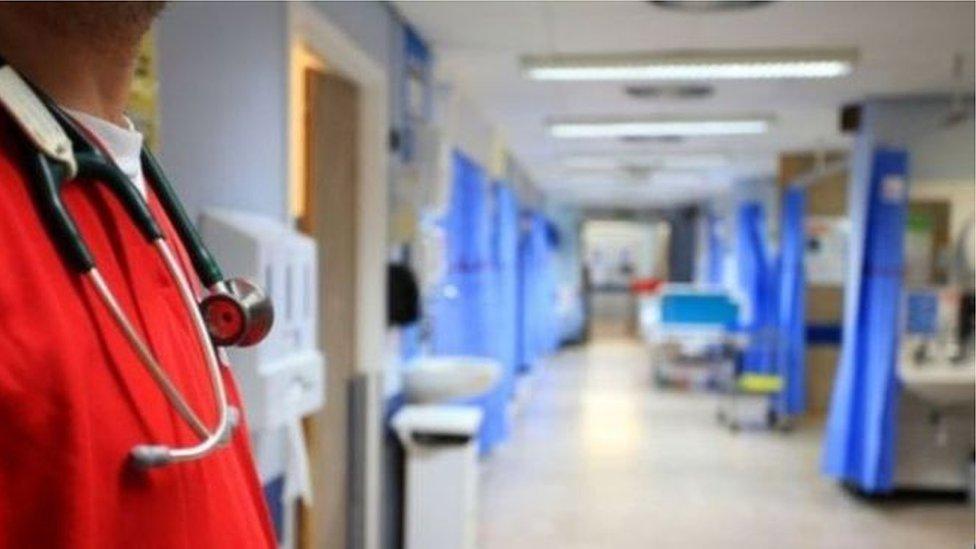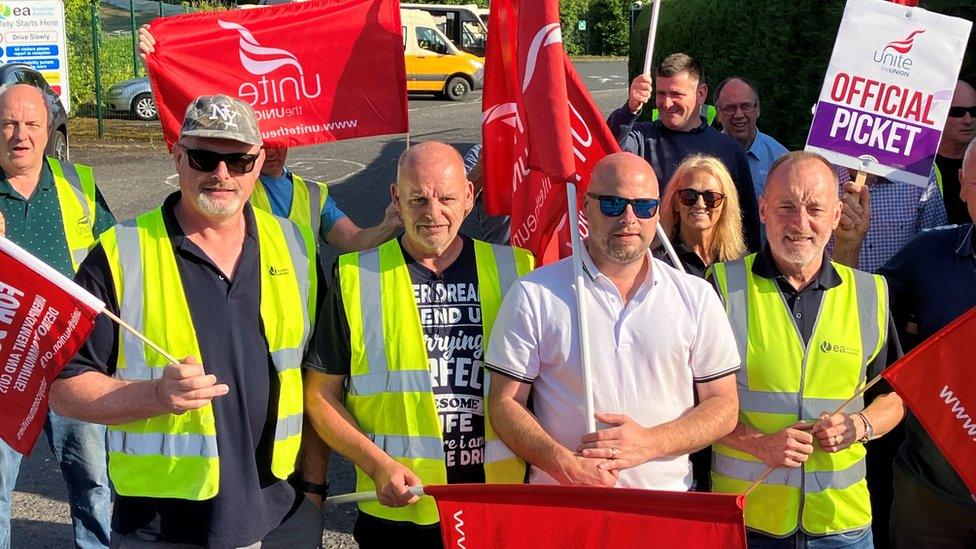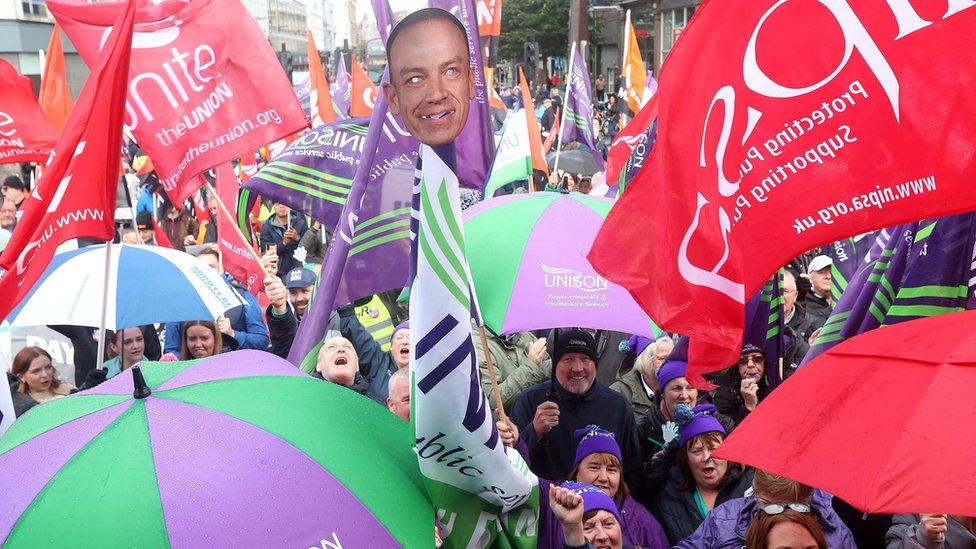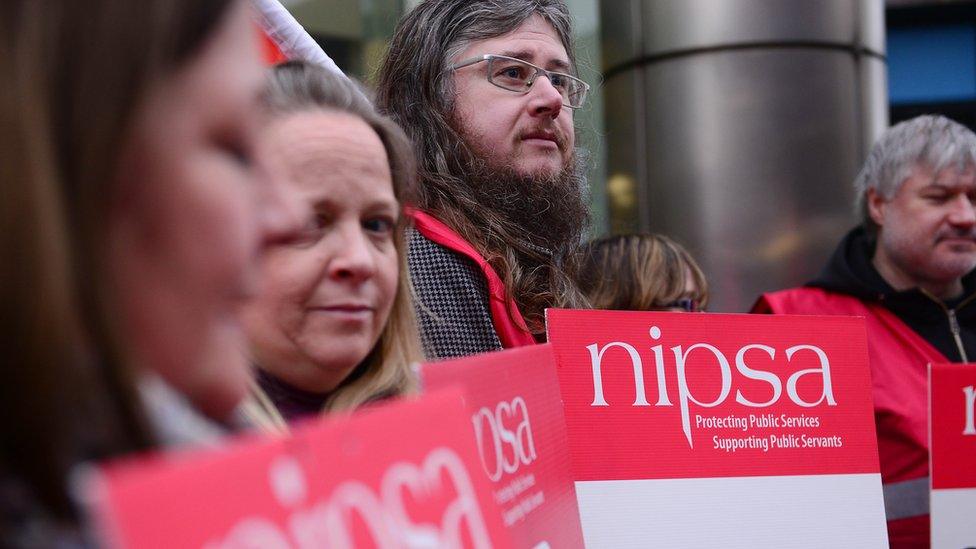Northern Ireland January strike to cause 'unprecedented' health disruption
- Published

The Department of Health said the strike will serious disruption in the already under-pressure health service
A major strike involving nurses, midwives and healthcare workers will cause unprecedented disruption, the Department of Health has said.
Tens of thousands of workers from across the public sector, including teachers, civil servants and bus and train drivers, are walking out on Thursday, 18 January over pay.
Unions have billed it as the biggest strike in Northern Ireland's history.
The department said it is extremely concerned about the impact on services.
It added that it the health system was "already under sustained and very severe pressure".
All health and social care including hospitals, community care and ambulances will be affected, with some services completely halted.
Department urges people to be careful
It is appealing to the public to use services appropriately to help ensure care is available to those who need it most.
It is also asking people to take all sensible steps to reduce the chances of requiring health service treatment on the day.
Some £584m to address public sector pay issues has been offered by the government as part of a financial package of more than £3.3bn for the return of a Northern Ireland Executive.
Prime Minister Rishi Sunak has said the dispute could be resolved "rapidly" if power sharing returned to Stormont.
In a statement, the department said it's "very aware of the deep frustration" of health service staff at the ongoing absence of a pay offer for this year.
"Under the current 2023/24 health budget, it has not yet been possible for the department to make a pay offer to HSC (health and social care) staff.
"That situation is neither sustainable nor defensible and cannot hold indefinitely."
'Political pawns'
Unison, a union which represents thousands of health workers, said it has worked with the department to mitigate disruption.
Conor McCarthy, the union's regional organiser, said it is working to "minimise as much disruption as humanly possible".
"We have a life and limb policy with regards to cover arrangements - in some occasions it will resort to a Bank Holiday cover arrangement," he added.
Mr McCarthy said the union is calling for the secretary of state to stop using workers as leverage and resolve the pay dispute.
"Our members are more and more determined - they're becoming more and more angry.
"Unison is repeatedly pressing the secretary of state to stop using health workers as political pawns.
"The secretary of state has fiscal responsibility in the absence of an assembly to ensure public sector workers receive the uplift that was agreed and what they deserve and are long overdue."
Which unions are striking?
A total of 15 unions have announced they will be taking action on 18 January:
British Dietetic Association (BDA)
Charted Society of Physiotherapists (CSP)
GMB
Irish National Teachers' Organisation (INTO)
Society of Radiographers (SoR)
Siptu
National Association of Headteachers (NAHT)
National Association of Schoolteachers and Union of Women Teachers (NASUWT)
National Education Union (NEU)
Nipsa
Royal College of Midwives (RCM)
Royal College of Nurses (RCN)
Ulster Teachers Union (UTU)
Unison
Unite
These unions represent about 173,000 workers, although not all will be on strike.
Related topics
- Published10 January 2024

- Published11 January 2024

- Published5 January 2024

- Published19 December 2023
